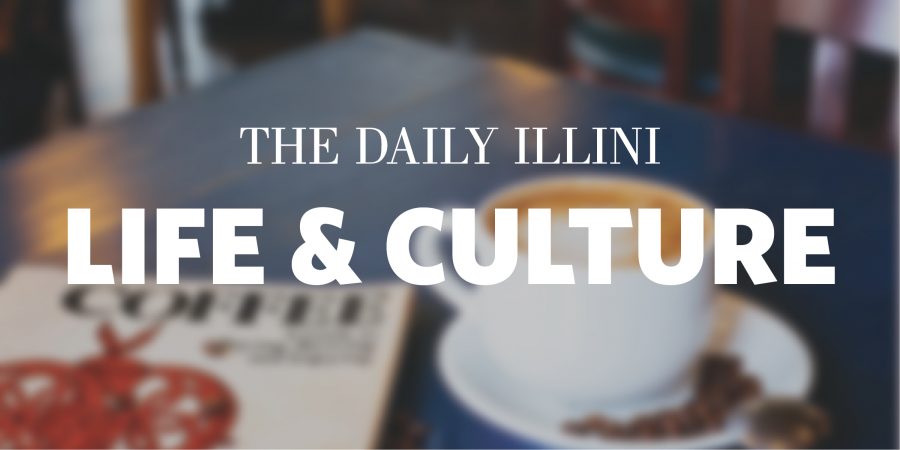Largest RSOs share insight on how to be successful
Oct 5, 2017
Habitat for Humanity accommodates for more than 750 general members, making it one of the largest RSOs on campus.
Several other RSOs including Alpha Phi Omega and the Illini Boxing Club also have a vast attendance of students. These RSOs pride themselves on different community and individual goals — they all strive to help students grow during and after their college careers.
Ranging from about 200-750 members in each RSO, several factors, including the structure and atmosphere of the organizations, account for such high levels of membership.
With over 750 members and 23 officers, Habitat for Humanity can attribute its initial success to the organization’s universal presence.
“Habitat for Humanity is really well known everywhere. When people first come to campus, they recognize our organization and want to help out and volunteer. We don’t have dues for general members, so we only ask them for their time to volunteer and fundraise,” said Brittany Lung, vice president of Habitat for Humanity and senior in Engineering. “There are so many different kinds of events that everyone can find something they enjoy.”
Get The Daily Illini in your inbox!
Similar in size, APO gains over 70 percent of its membership from word of mouth. With members in every college across campus, APO can attract a diverse set of members that still share the same passions and interests.
“I think we always keep people involved and engaged, and give them meaningful work so that they feel that they’ve gained something from it and are growing as a person as well,” said John Florido, president of APO and senior in AHS.
Illini Boxing Club has gained attention since its start in 2013 for members’ success at national competitions. Now, IBC has more than 170 registered members and is continuing to almost double their membership every year. The increase in membership may be attributed to the organization’s inclusive atmosphere and dedication to the sport.
Konstantinos Koiliaris, Ph.D. student in Engineering and president, co-founder and coach of IBC, wrote in an email that he believes many factors have contributed to their success.
“The first is our friendly atmosphere; boxing is often considered a brutal, competitive sport. We at IBC provide a friendly and welcoming environment for boxers of all experience to train and compete,” Koiliaris wrote. “Finally, the passion the coaches and the broader executive board show towards the sport, the club and our dedication to becoming better boxers.”
However, it’s not just how these RSOs attract members that makes them unique. Other than their general missions, it’s the friendships that people make through these organizations that allow them to continue to grow their membership retention rates.
“IBC is more than a club sport; we are a family. We train together, we push ourselves to our limits together, and we have fun together. We offer much more than boxing fundamentals and practice, we offer membership to a unique large family,” Koiliaris wrote.
The friendships Derek Glennon, president of Habitat for Humanity and senior in LAS, made while on one of Habitat for Humanity’s collegiate challenge trips to Louisiana during his sophomore year convinced him to take up a more active role in the organization.
“The reason I got into and stayed involved with Habitat for Humanity is because of the people. Everyone in the organization has a giving and service heart, and it’s a breath of fresh air to volunteer with people who are here to help our community,” Glennon said.
In APO, friendship is considered one of the service fraternity’s cardinal principles, along with leadership and service. Specific activities and requirements are enacted to ensure that members can bond and create lasting friendships with other brothers.
“Our three cardinal principles are friendship, leadership and service. I think our friendship aspect is really important because we are an organization of more than 600 people,” Florido said. “One way we try to make it more intimate is that we introduce dynasties. We split people up into six different dynasties where they find their pledge families and bond with more people.”
Florida said friendships are one of the many benefits of being part of such large RSOs. There are also plenty of leadership opportunities due to the quantities of students in these large RSOs, which requires help with management and more activities and competitions to plan for.
IBC can hold practices with more than 70-80 students at a time due to the leadership of three experienced coaches, including Koiliaris, and designing a training schedule and drills for every practice.
APO offers more than 200 leadership positions, including everything from the executive board to committee members that assist the chairs in planning specific activities and events. Through the leadership positions, members have a chance to learn different skill sets that could help them in the future.
Through each committee that you join, you gain a different skill set, Florido said. His first semester, Florido was able to enhance his critical thinking skills almost immediately.
“I was also a dynasty head and learned a lot of event planning skills because you have to facilitate bonds between people,” Florido said. “Each and every committee can provide a different thing, and as long as you want to do it and are passionate about growing as a person and doing your job, you’ll gain so much out of it.”
Habitat for Humanity also uses a leadership team comprised of 23 officers that include the executive board, officers, committees and directors.
Not only do the leadership teams throughout each organization see growth among the organizations, but they also see growth among themselves.
“Getting involved with Habitat for Humanity and meeting incredibly nice and ambitious people made me realize I wanted to step up and be more of a leader in my life,” Glennon said. “It’s really helped me grow as a person and find what I want to do and how I want to help people.”






